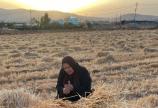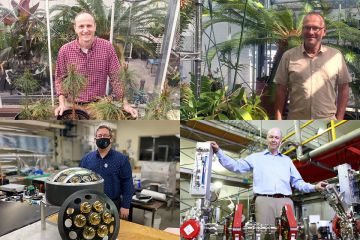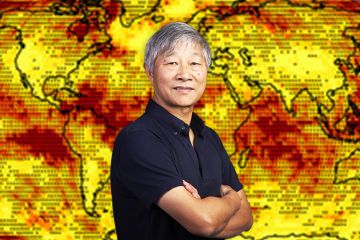Keeping Palestinian food culture alive
- Philip Cox
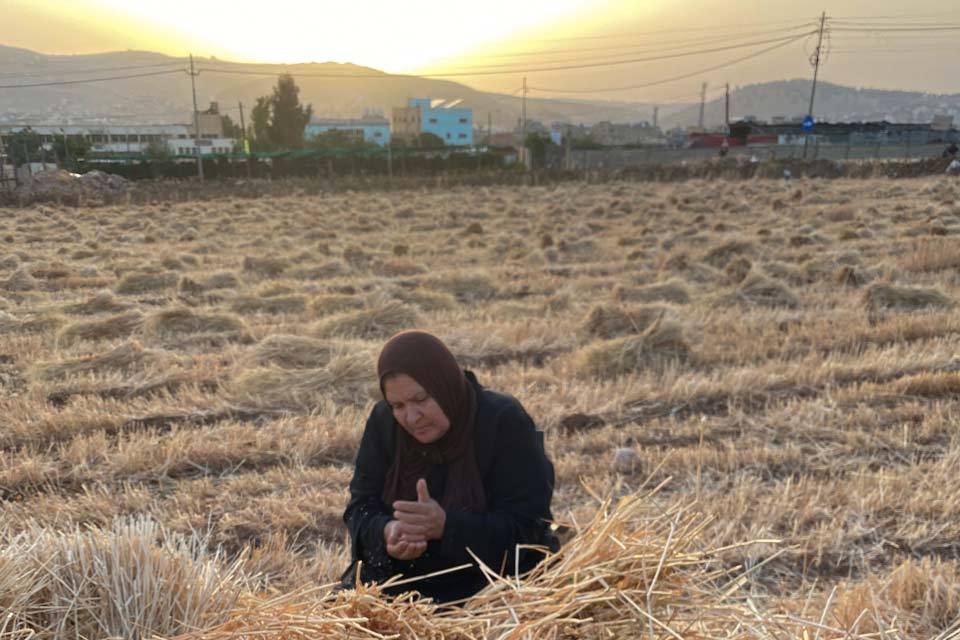
It's a late spring day in the Baqa'a refugee camp, home to some 105,000 Palestinians who were born into the overcrowded Jordanian district or settled there after being displaced from their homelands by the 1967 Arab-Israeli war. After months without rain, the days are long, hot and dry.
Within the rejuvenating shade of one of the region’s only stone grain mills, UVic historian Elizabeth Vibert, writing master’s student Guochen Wang, history master’s graduate Salam Guenette and a crew of local teammates are filming an interview with owner-operator Aisha Azzam for a documentary they are producing as part of the Four Stories About Food Sovereignty project—a UVic-led, transnational effort to document community responses to climate change, global economic pressures and political instability through the lens of small-scale food producers on four continents.
“For Palestinian food not to go extinct, the young have to learn from the old,” Aisha explains in Arabic for the camera while three of her grandchildren play near the mill’s wearied industrial equipment. “Food is the most precious part of Palestinian heritage.”
Although her tone is calm, the challenges besetting Aisha’s community have been mounting for years, and the situation is critical. Climate change-driven drought, global trade and agricultural policies, large inflows of people displaced from neighbouring countries, and chronic underfunding of the United Nations Relief and Works Agency for Palestine Refugees in the Near East (UNRWA) were problems for the import-dependent country even before the Russian invasion of Ukraine compromised global grain supplies and inflation rates surged worldwide, making refugee communities in Jordan among the most vulnerable in the country.
Filming the story of Aisha Azzam, a Palestinian refugee keeping her community’s food culture alive and establishing food security in a region rocked by climate change, water scarcity and humanitarian crisis.
In many ways, such insecurity is nothing new for Aisha, whose family are refugees twice over. In 1948, her grandparents were expelled from Bayt Mahsir, a Palestinian Arab village near Jerusalem, during what is known to Israelis as the War of Independence and to Palestinians as the Nakba (or “catastrophe”), which dispossessed more than 700,000 Palestinian Arabs of lands they had inhabited for centuries. With Aisha’s then-young parents in tow, they eventually found refuge in Karameh, Jordan, where Aisha was born and raised until upheavals following the 1967 war forced her family to relocate to the Baqa’a refugee camp, where they have lived ever since.
Among the precious few possessions Aisha’s grandparents carried with them into exile in 1948 was a millstone that their family had used for generations—“an essential household tool they used daily that could not be left behind,” Aisha explains.
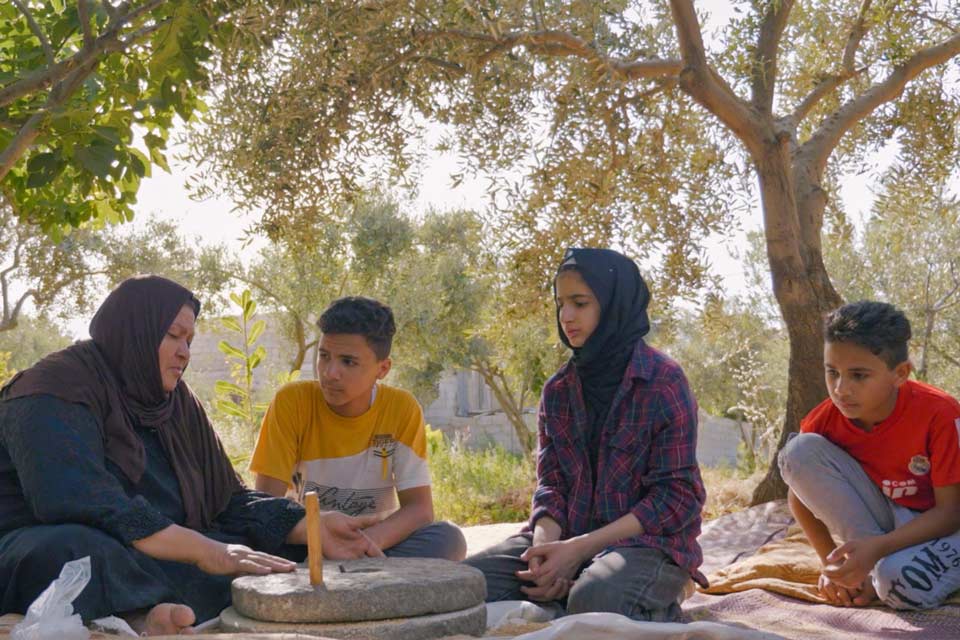
Along with the millstone, Aisha and her husband Hassan would come to inherit the knowledge, skills and traditions entwined with its operation after purchasing Hassan's family's stone mill in the 1980s. The two worked together for decades until he fell ill with cancer and passed away five years ago. Now, their son Ahmed handles the day-to-day labour—occasionally aided by his younger brother Omar during breaks from law school—while Aisha oversees the mill’s operations. On any given day one might enter to find an assortment of Aisha’s 12 children and 23 grandchildren at the mill, which has long been a family meeting place as well as a source of their livelihood.
“Aisha’s mill is important for the Palestinian community in Baqa’a and well beyond. In addition to rice, lentils, spices and other grains, they prepare wheat in the multiple forms that are central to Palestinian cuisine,” says Vibert, who is the founder of the Four Stories project and co-director of the documentary film. “This makes it possible for people to continue to eat the dishes they ate, generation upon generation, in their homeland. Her mill provides these crucial staple ingredients, helping to keep Palestinian food culture alive in exile.”
Local foods, global concerns
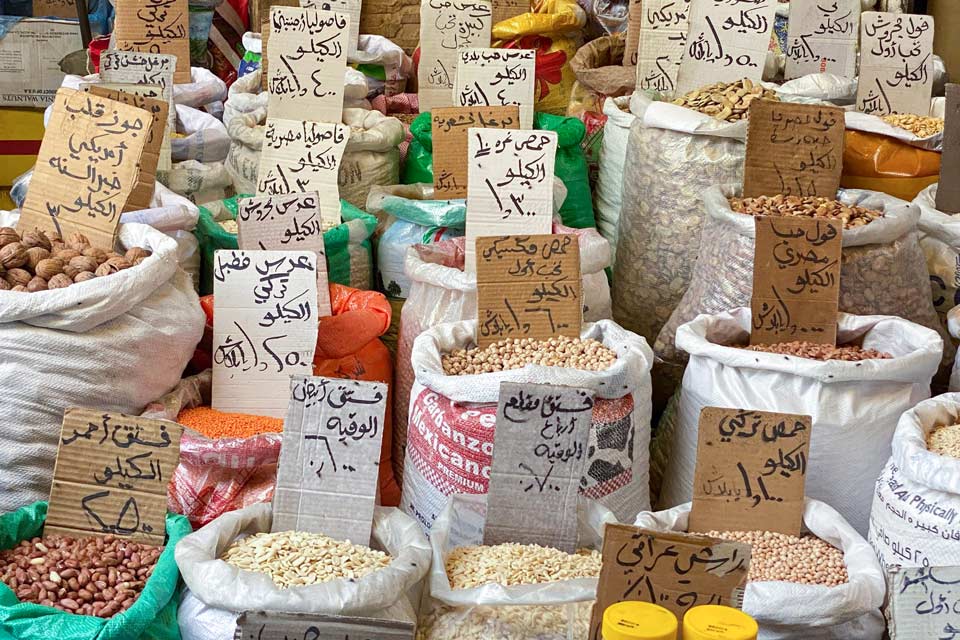
Just as the film crew’s interview with Aisha gets under way, a trio of customers pulls up to the mill by car—unexpected in the high heat of the afternoon sun—and joyful laughter quickly fills the cavernous, flour-dusted room.
Among the visitors is Tamam Al-Khawaldah, a Bedouin woman who has frequented the mill since she was a little girl and by now has known Aisha for 35 years. Today she, her husband and their friend have driven half an hour into Baqa’a from a nearby village to have their wheat ground by Aisha’s family, as so many customers do these days.
“On the news, we tend to see refugee camps portrayed through images of tents, dust and destitution, but the ‘camps’ in Jordan are more established than this,” explains Salam Guenette, a Jordanian-born Palestinian woman who is working on the film as a cultural consultant, interpreter and assistant director. “They have become a part of the urban landscapes that surround them, while still preserving a strong sense of Palestinian culture and place within.”
Encouraged by the warmth with which Aisha speaks to this film crew while their grain is being milled, and fascinated by the project, the Al-Khawaldahs invite Vibert and her team to their home near the ancient Roman city of Jerash for a traditional Bedouin breakfast—a treat by any measure. “Come,” they say, “come and share this wheat with us,” while loading their flour into their car.
In the front yard of their hillside home a few days later, Tamam demonstrates for the camera how she forms the dough to make shrak, an ancient flatbread popular across the Levant and Arabian Peninsula that is baked over a hot iron dome called a saj, which today they will heat with a small stick fire.
Watching her friend work without complaint beneath the sweltering sun and through occasionally stifling wafts of wood smoke, Aisha admits that she doesn’t know how to make this flatbread and asks Tamam where she learned. “I had to teach myself to make shrak when my mother was out of the house. She wouldn’t teach me because she thought it was torture,” Tamam replies without a hint of irony.
Once the bread is baked, the group sits down to eat, grateful for their hosts’ generosity and for this chance to share a meal together. Dishes of labneh, qualaieh and maqdous are laid out neatly before them—balls of pressed yogurt; tomatoes stewed in olive oil with fresh garlic; eggplants pickled and stuffed—to accompany the olives and oil from their trees, butter from their goats, and small bowls of locally produced pomegranate molasses, za’atar and shatta, with Tamam’s delectable shrak bread all around.
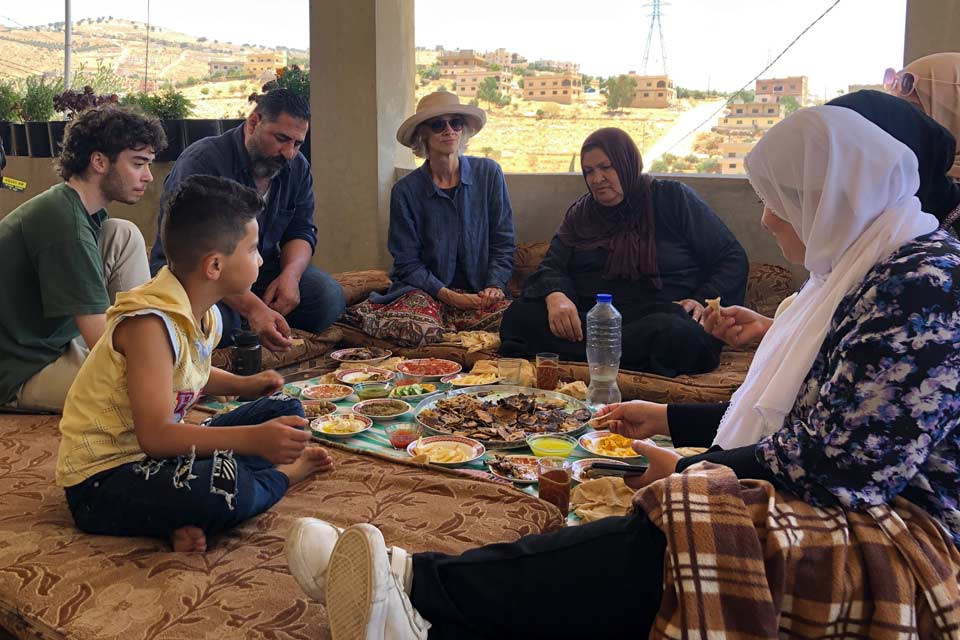
“Food is a very important part of Palestinian identity, as it is for many cultures—especially those living in exile. Many of our dishes are very regional, sometimes even micro-regional, so they become a focus for most gatherings, where we share stories and memories,” says Guenette. “The history of the Middle East is complex, but through food families and communities hold onto their heritage.”
Threatening these priceless exchanges is another commonality shared by people of all denominations in Jordan: namely, food insecurity brought about by water scarcity, climate crisis, and decades of global food and trade policies favouring wealthier nations in the Global North.
Already a semi-arid and mostly desert country, the nation’s breadbasket in the Jordan River Valley has become frighteningly water-stressed due to increasingly frequent and prolonged droughts, agricultural over-use, capture of river water by neighbouring countries, and population density. After producing an abundance of wheat for thousands of years, these intersecting factors have left the Hashemite Kingdom grossly dependent on imports for its major foodstuffs in recent decades.
The climate change-driven droughts have taken a serious toll on civilian populations as well. In Baqa’a—which was built directly over top of wheat fields in the 1960s—families rush to fill their rooftop water tanks on municipal water days, which occur once or twice per week. After that the pipes run dry and they must turn to expensive private suppliers to fill their needs.
Water crisis and other factors have led to a growing recognition by Jordanians of the need to return to the rain-fed, drought-resistant, heritage grains that sustained communities here for millennia. An organization in the nearby city of Amman called Al Barakeh (which means “God’s blessings”), for example, is supercharging interest in locally-adapted foods and traditional processing techniques by teaching people to grow ancient wheat varieties in unused and abandoned lots—some of whom are now bringing that grain to Aisha’s family mill, like the Al-Khawaldahs have done for decades.
“Aisha lives in a refugee camp, yet she has found a way to craft a meaningful, dignified life and create opportunities for others to do the same. Her work is an everyday act of resistance to her peoples’ displacement and dispossession—at once protecting Palestinian identity through food culture and supporting sustainable local food systems,” says Vibert. “I don’t want to be overly romantic about it, but I strongly believe that initiatives like Aisha’s are part of the solution to the compounding challenges faced by communities around the world.”
Sharing Aisha’s Story
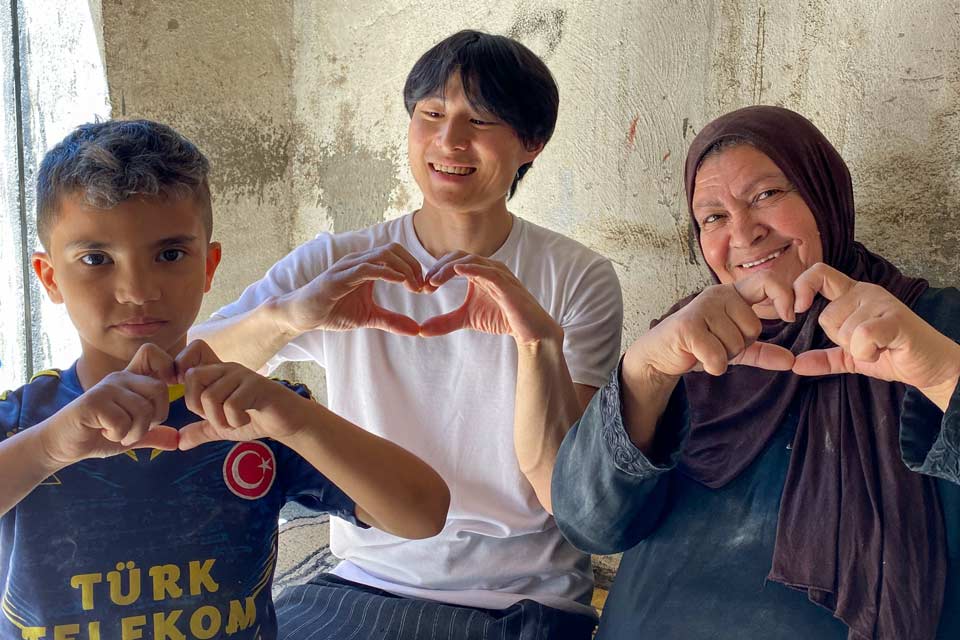
Back in Canada at UVic, Vibert, Guenette and Wang have spent months together in a small video editing suite on campus, reviewing footage and storyboarding ideas for their documentary, which is tentatively titled Aisha’s Story and scheduled for completion by the year’s end.
In scene upon scene they bear witness to the profound if mournful beauty of a family overcoming the burden of intergenerational lack and loss through everyday acts of love, reciprocity and interconnection with the peoples and places that surround them.
“It’s such a privilege to be welcomed into this family’s world and get to know them, which I think the viewers will feel as well,” says Wang, who is the co-director and cinematographer of the film. “There’s this one scene I think about often, where Aisha teaches her grandson how to cook maftoul. It was such a nice, simple moment between them. I realized that a lot of common ideas about what it means to be a Palestinian living in a refugee camp are just empty stereotypes. So, as filmmakers, the best thing we could do is step back and let them tell their own story.”
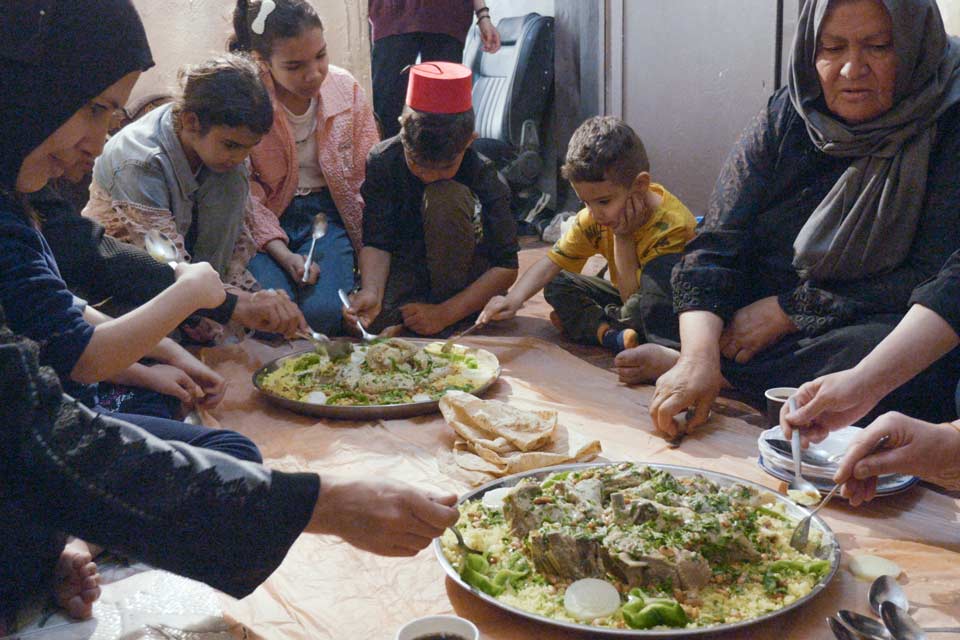
The documentary is the culmination of several years of oral history research that Vibert has conducted with Aisha and others in the Baqa’a community. It is the second of four film projects that will be created under the auspices of Four Stories about Food Sovereignty, which is directed by Vibert and funded by the Social Sciences and Humanities Research Council of Canada.
In 2017, Vibert co-produced The Thinking Garden with Christine Welsh, a Métis filmmaker who became the first Indigenous instructor at UVic’s Faculty of Humanities when she was hired in 1996. Their award-winning documentary tells the story of Hleketani Community Garden, a farming collective created by three generations of women in a South African village to achieve a measure of food security in the face of severe drought, climate change and structural poverty.
A third film, led by Indigenous Wayuu filmmakers in Colombia and currently in production, documents the Wayuu peoples’ struggle to achieve greater autonomy over their food system while their lands are degraded by the activities of multinational mining companies.
The fourth and final project will document the efforts of the T’Souke First Nation, in southern Vancouver Island, to protect and regenerate traditional food systems that have been disrupted by the exploitation of their lands by forestry companies and private developers.
Asked why Vibert—a historian by trade—has turned to film, her answer is succinct.
Film is the perfect medium for stories about struggles for food justice. It demonstrates ways of living and being that can seed new spaces of possibility for others, who see and learn from them. This is certainly true for Aisha. Creating a film about her mill is the ideal way to convey, in my colleague Christine Welsh’s words, the story of an ordinary woman doing extraordinary things.”
—UVic historian Elizabeth Vibert
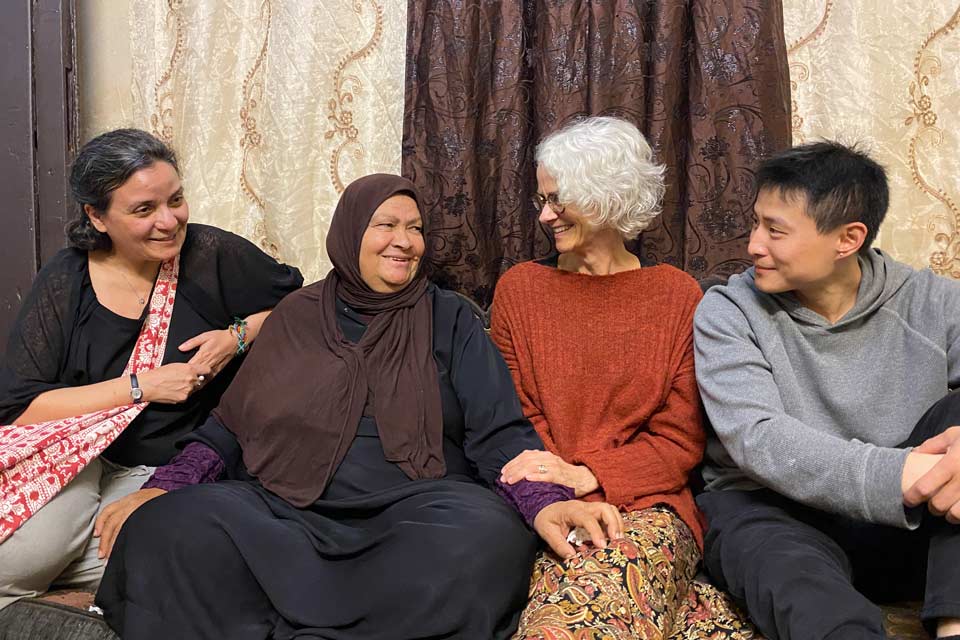
Read more:
Photos
Videos
In this story
Keywords: People Place Planet, agriculture, film, history, refugees, water, community, health, international
People: Elizabeth Vibert, Guochen Wang, Salam Guenette
Publication: The Ring

